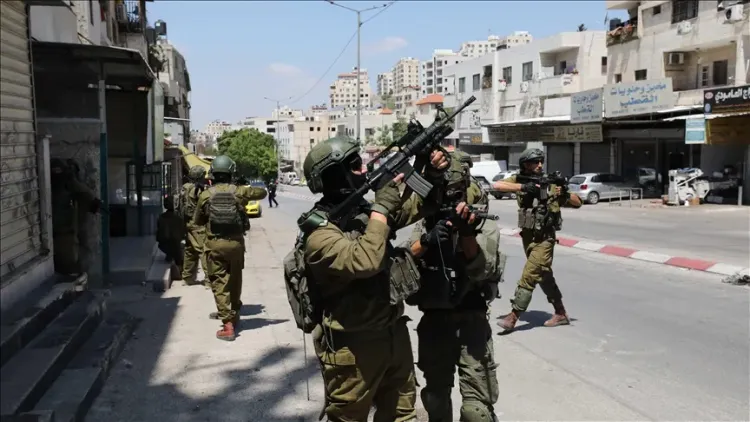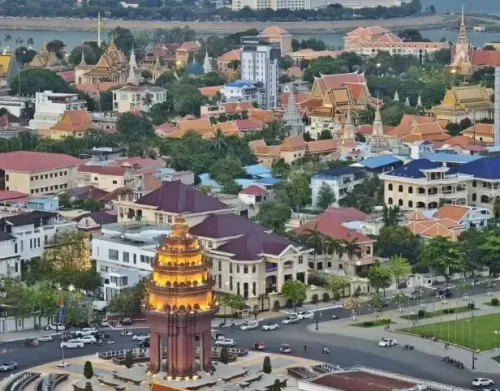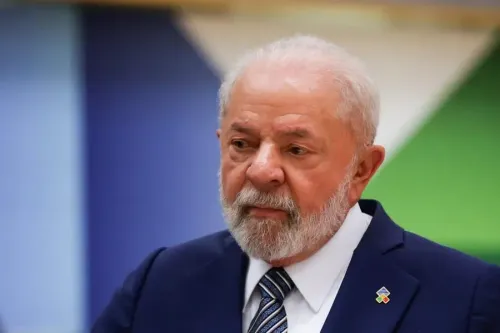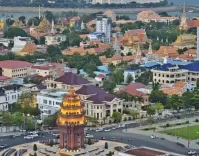Why Did the Israeli Army Order a Mass Call-Up of Reservists Ahead of Gaza Offensive?

Synopsis
Key Takeaways
- Mass reservist call-up: The IDF has mobilized tens of thousands in anticipation of an escalation.
- Humanitarian crisis: The blockade has led to severe conditions in Gaza.
- Ongoing negotiations: Pressure on Hamas remains a key objective.
- Death toll increases: The toll from the conflict has risen sharply.
- Military strategy: Expanded operations are being planned in Gaza.
Jerusalem, May 4 (NationPress) The Israel Defense Forces (IDF) have announced a call-up for tens of thousands of reservists as they prepare for an intensification of their military operations in the Gaza Strip.
Prime Minister Benjamin Netanyahu conducted a security meeting on Saturday to evaluate the planned military offensive that necessitates significant mobilization, as reported by Channel 12, Ynet, Kan, and others.
During a security briefing on Friday, the IDF presented its revised operational strategies in Gaza to Prime Minister Netanyahu, according to the Xinhua news agency.
Simultaneously, the IDF is preparing to manage the resumption of aid deliveries to the Strip under more stringent oversight.
With the aid blockade exceeding two months, international organizations are raising alarms about severe humanitarian crises developing in the region.
Channel 12 indicated that the plans for expanding the offensive are not yet finalized, as Israel aims to allow more time for negotiations regarding hostages. The report noted that a new offensive is unlikely before U.S. President Donald Trump's visit to the region from May 13 to 16 (the U.S. leader is set to visit Saudi Arabia, the United Arab Emirates, and Qatar, but not Israel).
The security cabinet is anticipated to convene on Sunday to vote on formally endorsing the plans, which Netanyahu has already approved.
Israeli media have reported that the primary aim of the current campaign is to exert pressure on Hamas to reach a hostage release agreement, rather than to completely eradicate the Palestinian militant group.
Israeli officials have continually warned that if a deal is not reached promptly, a full-scale offensive aimed at dismantling Hamas could commence.
The next phase of the offensive will encompass IDF operations in additional parts of the Gaza Strip.
The IDF has stated that the reservists called up on Saturday evening are expected to commence duty beginning next week.
Many of these reservists may have been mobilized multiple times throughout the conflict.
Fighting has persisted for the past month and a half following the collapse of a ceasefire and hostage release agreement between Israel and Hamas.
The militant group has insisted that any new agreement must result in a permanent ceasefire and a full Israeli withdrawal from Gaza, in exchange for the release of the remaining hostages, similar to what was outlined in the previous agreement.
Netanyahu has dismissed this proposition, asserting that Hamas cannot maintain control in the enclave.
Arabic media reported on Friday that Israel rejected an Egyptian initiative for a temporary ceasefire, prompting a quick denial from Netanyahu's office.
Since the conclusion of the first phase of the agreement on March 1, Israel has barred any aid from entering Gaza, claiming that sufficient supplies have been delivered to sustain the two-million-strong population for an extended period and that Hamas is misappropriating aid for its militants.
However, with the blockade now in its third month, humanitarian organizations reported on Friday that starvation and conflicts over water are rampant in Gaza, warning that aid efforts are on the verge of total failure.
The Hamas-controlled Health Ministry in Gaza stated on Thursday that at least 2,326 individuals have died since Israel resumed its military actions in the Strip, raising the overall death toll since the onset of the conflict to 52,418.









